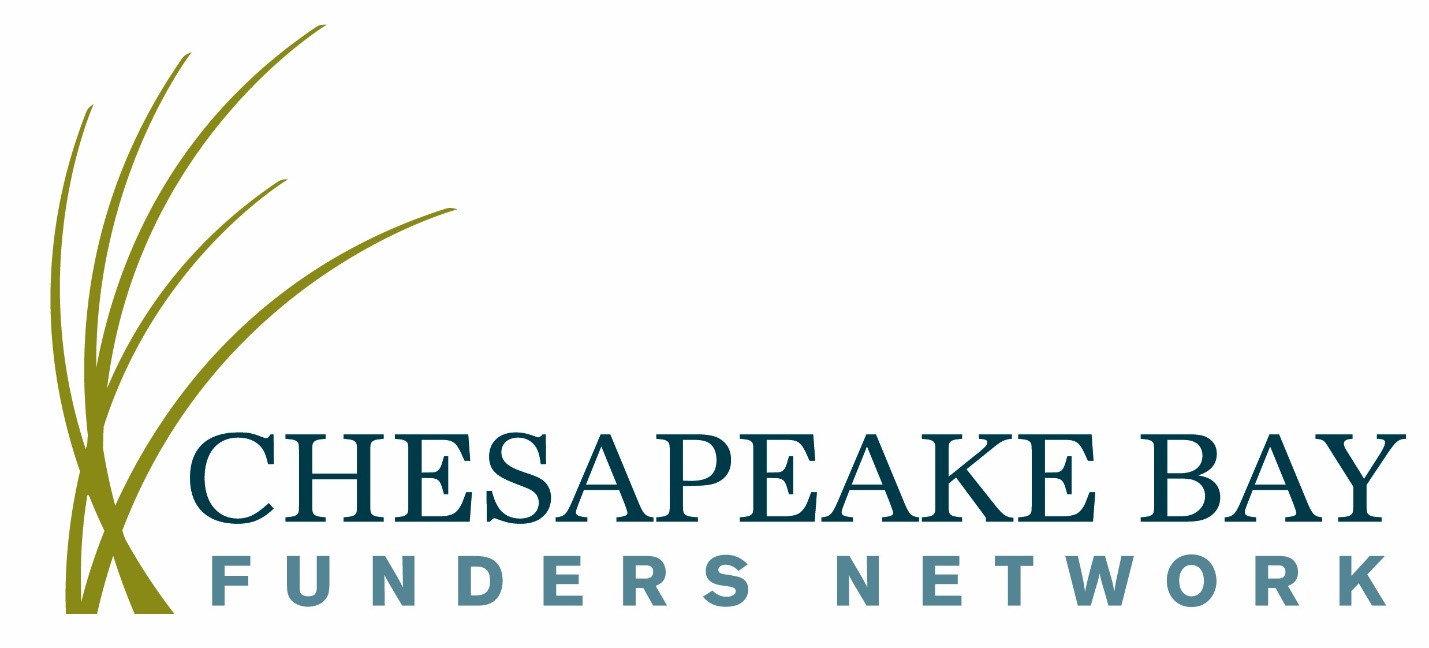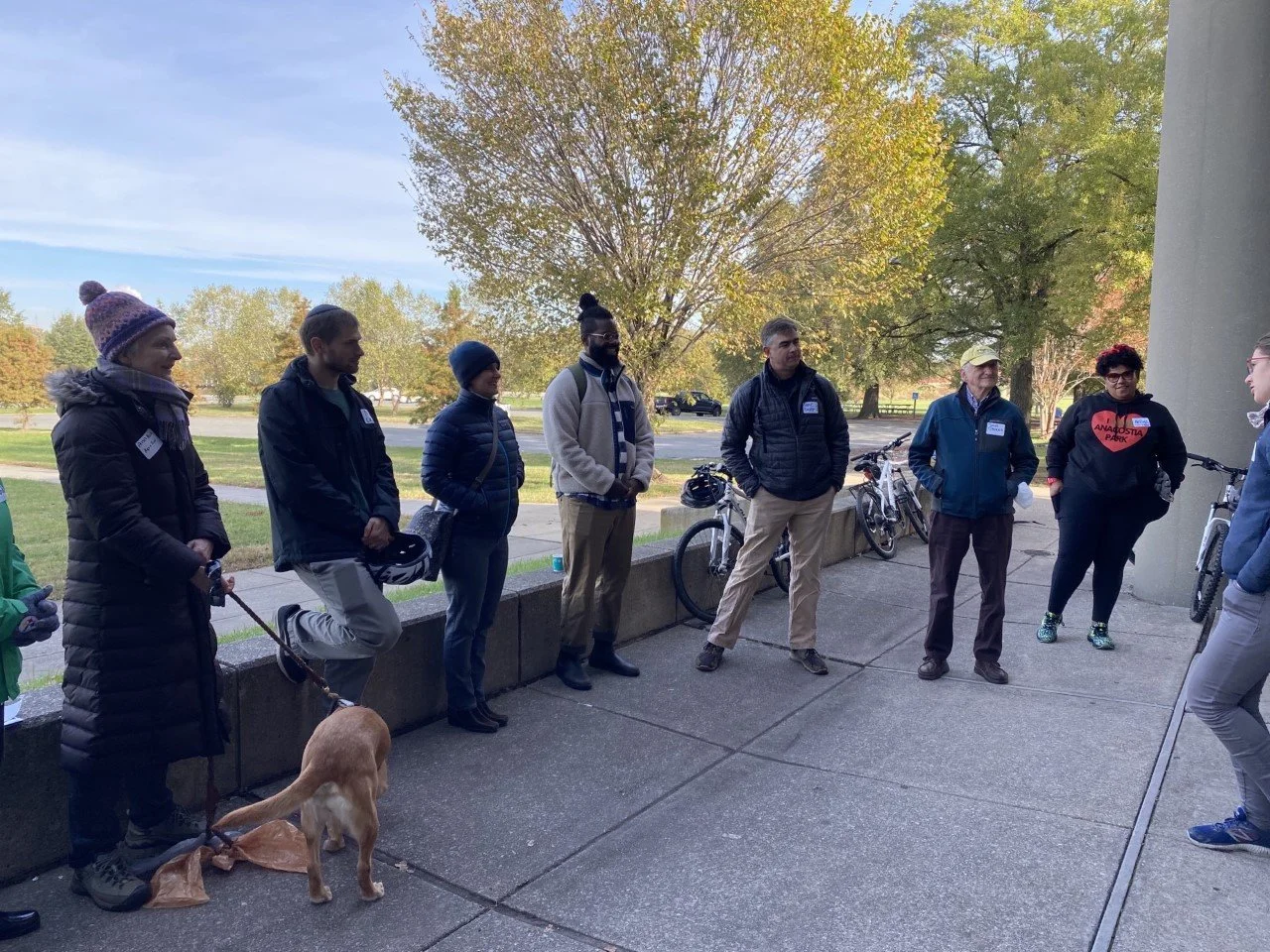Chesapeake Food and Agriculture Funders
BACKGROUND
Established nearly 20 years ago as an informal network of grant-makers interested in collaboration, the Chesapeake Bay Funders Network continues to evolve, adapt and meet the challenges in the Chesapeake region with thoughtful and collaborative philanthropic actions. Today, CBFN is guided by an accessible, transparent and action-oriented network of grant- makers that share and wield their power of decision-making and influence to achieve the following priority outcomes:
A thriving agricultural system in the Chesapeake region that provides healthy food for all people, promotes land conservation, access and natural resource stewardship and sustains an equitable and resilient agricultural economy.
A democracy that supports effective and equitable policy enabled by a diverse, powerful and intersectional environmental movement in the Chesapeake region.
Climate resilient communities with equitable access to clean, affordable energy, water, open space, and economic opportunity.
CONTEXT FOR THIS SCOPE OF WORK
Food and agricultural systems influence issues of climate, water quality, land conservation, biodiversity, healthy food access, equitable economic opportunity, and viability of rural communities perhaps more than any other system in our region. So, it is not surprising that more funders are engaged in food and agriculture related issues than any others in our region. Despite this, we have struggled to sustain an organized, effective, and forward-thinking funder led group where learning and shared analysis of our collective strategies and approaches can occur and opportunities for collaboration are vetted. The regional Bay restoration effort will fail to meet yet another deadline in 2025, with pollution from Agriculture as the most significant remaining challenge. At the same time producers, investors, food businesses and policy makers in the region are increasingly leading, funding and marketing a resilient, equitable, “regenerative” or climate friendly regional food system. The prospect of engaging and shifting food and agriculture systems can be daunting and for some, perceived as not well aligned with the near-term goals they have defined in their food and ag related work.
Yet, there are increasingly more opportunities for investments that could leverage long term shifts toward regenerative systems, with multiple environmental and social benefits. It might be the time for more focused, organized, and concerted action among funders in the Chesapeake region to engage with these opportunities and think long term with a bias toward immediate action.
OUR ACCOMPLISHMENTS
Over 10-year history, WRFF has:
Hosted convenings focused on a range of topics, including the regional food economy, food system funding trends, regional health outcomes, food policy advocacy and impact investing.
Supported several reports, including an assessment of the foodshed’s needs that laid the foundation for a collective vision for the region, a snapshot of food related philanthropic investment in the Chesapeake region, recommendations to ensure a racial equity focus within food system funding, all of which point to the need for more regional coordination, systems and root cause-focused interventions.
Assembled the Chesapeake Food Summit gatherings, including over 400 senior leaders from across the food system to celebrate progress, identify needs, and mobilize resources.
Support short- and long-term collaborative action, including coordinated grantmaking to establish a regional Value Chain Coordinator program, support coordination and collaboration across the food supply chain and the creation of the Mid Atlantic Food Resilience and Access Fund (MAFRAC) to help farmers and food provide a response to the Pandemic food supply crisis.
Staff and trustees of private, family and community foundations, public charities, individual donors, and donor-advised funds that work primarily as grantmakers rather than as grantseekers and share the purpose and values of the WRFF are encouraged to participate. Those who value participation are also encouraged to become Members and a suggested dues contribution is included below.
Dues paying members also receive membership to the CBFN, providing your staff and board:
Access to additional information that enhances grantmaking;
Connections to other funders with shared interests and valuable peer-to-peer learning opportunities in a funders-only setting;
Collaboration through forums focused on the common agenda to increase the impact of philanthropic investments in conservation on a local and regional scale; and
Opportunities to serve in a leadership role within the network.
Members are asked to contribute annual dues at recommended levels based upon their total food system-related grantmaking investments made each year. Contributions support essential network facilitation and operations.
For more information, please contact Megan McPherson, CBFN.


